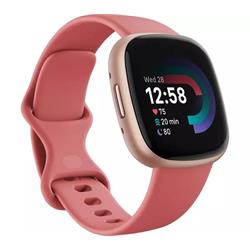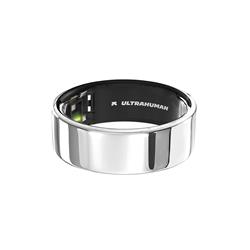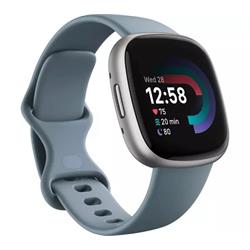LIFESTYLE
13 Tips to Improve Your Wellbeing

Wellbeing is a hot topic around the world right now – and rightly so. Especially in recent times in the aftermath of the Coronavirus pandemic and the epicenter of the cost of living crisis, people are encouraged to seek support for their physical and mental health. Reflection on the past and the future can be a productive exercise but can also leave us feeling anxious and worried.
So what simple changes can we make to improve our wellbeing? It’s comforting to note that we don’t have to change every aspect of our lives to feel ‘better’ – just little things we can do when we feel like a happiness boost or a distraction is needed.
1. Get some exercise

Physical activity and regular exercise is great for your health and can boost your mood in many ways. It’s not easy for everyone to get up and go for a run – and nobody is asking you to do that! Any form of exercise is beneficial for your body as it pumps oxygen to the brain and releases hormones that make you feel happier. Adults (aged 19 – 64) are recommended to do some form of physical activity every day. NHS recommends you should “do strengthening activities that work all the major muscles (legs, hips, back, abdomen, chest, shoulders and arms) on at least 2 days a week.” As well as the physical improvements you’ll see in your body over time (if that’s your aim), you’ll also notice the gratification you receive after completing your exercise. It’s no easy feat, so you deserve to feel good. Any activity is better than none. If you want to track your exercises, reach your fitness goals and learn more about your health, try out our fitness smart watches that can help keep you on track.
Popular fitness trackers
2. Listen to your favourite music

It’s a well-known fact that a good music playlist can alter your mood. It’s known to boost productivity, creativity, focus and can affect our moods in many ways; like when you listen to mellow songs when you’re feeling down. We're not saying you should do that... Sometimes it’s good to put on your favourite music that you know makes you happy – and it’s up to you whether you want to dance around the room. No judgements here. If you’re interested in investing in a new speaker so you can enjoy your favourite tunes, look no further.
Popular wireless speakers and headphones
3. Be creative

You don’t have to be Picasso to paint or Beyoncé to sing. It helps… but you can be creative however you like, and harness the benefits while you're at it! Self-expression through creativity helps process emotions in a way that words often can’t; giving your mind a productive release from thoughts, worries, and responsibilities that can feel overwhelming. Forbes touches on How Creativity Actually Improves Your Health and how it “reduces anxiety, boosts your mood, and even slows your heart rate.” Observing life through a creative lens can help you value the little things. Why not capture your creativity through photography with our range of cameras, or, bring out your inner artist with our range of tablets.
4. Pick up a hobby

There’s never a right time to stop learning and finding new ways to have fun. It’s become apparent that many people have felt the need to pick up a new hobby during lockdown to keep their minds occupied. Whether it’s learning a new language, painting, learning how to code or even reading more books. Surely there’s something you’ve always wanted to try out? It’s a great way to test your brain and give yourself something to feel proud about.
5. Go outside

Nature is known to improve your mood and reduce feelings of stress. And guess what – it’s free! Spending time in green spaces, surrounded by nature is a great way to take your mind off things. Whether you want to exercise outside, take your dog for a walk, do some gardening, grow your own veg or sit outside and listen to the birds, it can have a positive effect. Mind charity’s publication on the benefits nature can have on mental health also recommends bringing the outside world inside. Like making sure you have nice flowers or, if you like to draw, why not draw animals and nature? Fresh air always does us some good. We might be all about technology, but everyone deserves a little break!
6. Read a book

Reading doesn’t always feel like something we have time for these days. It takes dedication, focus, peace and quiet, which is hard to achieve. Believe us, we know. Reading a book can take our minds somewhere else and transport us to another world. It’s also known to reduce blood pressure, heart rate and reduce stress. A study, according to MFHA England, showed that reading was better at reducing stress than music, drinking a cup of tea, going for a walk or playing video games. If you like to read e-books, take a look at some of our popular tablet range, perfect for books on the go!
7. Get a good night’s sleep

Does anyone actually get the recommended amount of sleep? Harvard Health Publishing advises us that “sleep deprivation affects your psychological state and mental health.” We know how it feels to be tired and most of us are aware that we can’t function half as well as we do after a good night’s sleep. But, like with everything, it’s easier said than done! NHS recommends that most adults need between 6 and 9 hours of sleep every night. A good tip is to make sure you don’t go on your mobile phone while you’re in bed. The light from your phone keeps you awake and takes hours of important sleep away from you. It’s also not beneficial if you have anxious thoughts and scroll through social media or news channels so late at night – most of the time, whatever you’re looking at can wait until tomorrow. Have a look at what the Fitbit Charge 6 can do to benefit your sleeping pattern by providing sleep analysis, as outlined in our review. Or, why not leave screens behind entirely at night, and track your sleep with the Ultrahuman Ring.
Track your sleep with the Ultrahuman Ring
8. Practice mindfulness

Our last point leads nicely onto mindfulness. Mindfulness is a big buzzword and has been for some time now – but what does it mean? According to Mind charity, “Mindfulness is the basic human ability to be fully present, aware of where we are and what we’re doing, and not overly reactive or overwhelmed by what’s going on around us.” That sounds good, doesn’t it? It’s not so much a technique but a state of mind. Professor Mark Williams, former director of the Oxford Mindfulness Centre, says "An important part of mindfulness is reconnecting with our bodies and the sensations they experience. This means waking up to the sights, sounds, smells and tastes of the present moment. That might be something as simple as the feel of a banister as we walk upstairs.
With insightful tools like stress management, heart rate notifications and daily readiness scores, available in Fitbit’s most advanced fitness and health tracker, you can start becoming one with your body and soul.
Most popular Fitbits
9. Keep in touch with loved ones

When we were faced with a seemingly never-ending global pandemic and were told to self-isolate from loved ones, colleagues and everyone else, it was really difficult to stay 'sociable'. It’s never been more beneficial for us to communicate with those who are important to us, and technology has been our saviour in recent times. Quiz nights over video calls with friends, phone calls with family members and daily messages to loved ones. When it comes to your wellbeing, it’s important to surround yourself with people who make you feel good and lift you up. Plus, many of us just don’t like being alone. Even if it’s just a phone call, make the effort if you know it’ll raise your spirits.
Most popular home phones and smartphones
10. Eat a healthy and balanced diet

It’s a well-known fact that what we eat can affect our mood. Chemicals found in food and drinks, like caffeine, are stimulants that keep us awake and make our hearts race. That’s why many people have coffee in the morning to wake themselves up! Caffeine is also found in tea, chocolate, cola and other manufactured energy drinks. You can visit the government’s website for their recommendations on a healthy diet and ‘The Eatwell Guide’. Eating a heathy diet has its benefits for mental health and, of course, physical health too. There are many recipes out there that can keep you inspired. So why not enjoy some cooking videos hands-free, at your own pace with a smart display?
11. Be productive

Many of us are working from home after the turbulent Coronavirus pandemic. It can be difficult to feel productive at home, especially if you’re used to working in an office building. But there are ways to do it! A great laptop or PC is a great place to start. When it comes to choosing a laptop for home use, you may want something small but powerful, and easily portable so you can move it around the house easily. Laptops are a good solution if you have family and need a device you can share with everyone. It's also handy to have a laptop when you work on the go, or like to take your device with you while you're traveling. Productivity makes us feel like we’ve accomplished something, which is good for our mental health. It may feel hard to disconnect from work while working from home, but don’t forget that a work-life balance is still very important. Take regular breaks, get fresh air and take moments to gather your thoughts.
Most popular laptops
12. Look after your mental health

Well, the fact you’re reading this article and you’ve reached point twelve out of thirteen means we’re on to something! Thanks for sticking around. It’s so important to look after your mental and physical health, even if you feel you don’t need to sometimes. We’ve touched on many ways to improve your wellbeing, but looking after yourself can mean eating well, being more active, doing activities you enjoy, being creative and taking a break. Take time to refocus your mind in a world that’s always got so much going on.
13. Set goals for yourself

Now we’ve reached the end of the article, we hope you’ve learned new ways to improve your physical and mental health and wellbeing. Setting goals for yourself is a great way to feel inspired, optimistic and excited for the future. So pick any one of these tips and set it as your goal for the year! And you may just prove to yourself that you can achieve anything you set your mind to! It’s important to take time to yourself, relax and reconnect by disconnecting – and always ask for help if you need it. There are loads of resources on-hand to help.
For extra reading around wellbeing and mental health, try the below websites:







































































